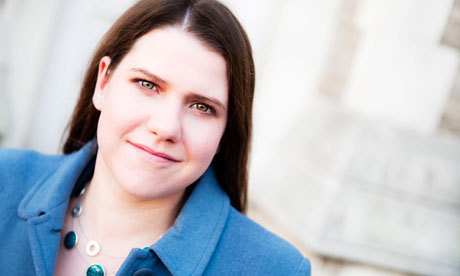由英国议会议员和基督教青年总会联合发布的一份调查报告显示,一半以上的英国人正因为体形不好而遭受精神和身体双重煎熬,连5岁的小姑娘也时刻在担心自己的体重,人们对体形的重视程度超过了对健康的关注。这分报告指出,由于受到媒体、广告以及名人效应等不当影响,人们对体形和外貌的追求也日益趋向完美。自2008年以来,英国人做整容手术的比例上升了近20%,14岁的孩子当中有一半的女孩和三分之一的男孩都试图通过节食改变体形。这份报告建议对健康专家常用的“身体质量指数(BMI)”进行重新评估,同时呼吁广告商重视广告内容的真实性和多样性,不要一味使用数字合成的照片和过于瘦弱的模特。

 |
|
Liberal Democrat MP, Jo Swinson, leading the parliamentary group says body image dissatisfaction in the UK has reached an all-time high. |
Girls as young as five now routinely worry about their weight and appearance while more than half the entire UK population is grappling with mental and physical problems relating to negative body image, according to a parliamentary report published on Wednesday.
The pressure to achieve an unrealistic "body ideal" is now an underlying cause of serious health and relationship problems, according to a study from the all-party parliamentary group on body image. This pressure is "damaging society" by wreaking havoc with self-esteem and affecting progress at school and work.
The issue is no longer determined by gender, with body image now a major concern for boys and men as well as girls and women, the report concludes. Half of girls and a third of boys aged 14 have been on a diet to change their body shape, the document said, with youngsters exhibiting their parents' own anxieties.
The 80-page report was drawn up by MPs and Central YMCA, the world's biggest young people's charity, after a three-month public inquiry during which hundreds of witnesses made submissions.
It concludes that a toxic combination of the media, advertising and celebrity culture account for almost three-quarters of the influence on body image in society, yet the "body ideal" typically presented was estimated to be not physically achievable by nearly 95% of the population.
Among its recommendations being put to government, regulators, voluntary organisations and the private sector, are for the "inaccurate" and discredited body mass index – the standard measure used by physicians and health experts to determine weight status (underweight, overweight or within a healthy range) – to be reviewed with a view to being replaced.
The report also calls for better support for new mothers and school pupils, and a vow from advertisers to reflect "consumer desire for authenticity and diversity" rather than to use digitally-enhanced images and thin models.
Cosmetic surgery rates have risen by nearly 20% since 2008, "fuelled by advertising and irresponsible marketing ploys", the group said. It called for tougher regulation of cosmetic surgery advertising, including a stand-alone code along the lines of the one in place for alcohol. It also advocates an independent patient group which would give impartial information, advice and support on body enhancements, including cosmetic surgery, skin whitening, supplements and steroids.
Central YMCA will use the report's recommendations in a national campaign, to be launched in the autumn in partnership with several other organisations. It wants a kitemark to be awarded to socially responsible businesses taking action to tackle negative body image.
Liberal Democrat MP Jo Swinson, chair of the group, said: "Body image dissatisfaction in the UK has reached an all-time high and the pressure to conform to an unattainable body ideal is wreaking havoc on the self esteem of many people."
Rosi Prescott of Central YMCA said: "It's clear there's something seriously wrong in society when children as a young as five are worrying about their appearance, based on the messages they are seeing all around them.
"The findings of the report are shocking – body image has become more important in our culture than health and children are mimicking their parents' concerns about appearance.
"We all have a responsibility to act now to bring about the attitudinal and behavioural change that's necessary to prevent damage to future generations and that is why we are urging the public to give us their views to help shape the campaign we will be launching this autumn."
The report warns of weight problems spiralling out of control as "people who are overweight or obese were seen to be stigmatised and this was associated with a decreased likelihood of engaging in healthy behaviour such as exercise".
The inquiry was mired in controversy early on when women who claimed to have been failed by weight loss programmes sold by diet companies staged a protest outside the House of Commons to accuse the industry of "wreaking havoc with appetites and lives while it builds huge profits". It was organised by lobby group Endangered Bodies, which wants all body shapes to be considered acceptable.
On Tuesday night the British Association of Aesthetic Plastic Surgeons (BAAPS) said it backed the recommendation that a separate code be drawn up governing cosmetic surgery advertising. It has called for an outright ban on such ads in public places including billboards and public transport. The BAAPS also announced it is funding long-term research into psychological assessment of patients.
相关阅读
(Agencies)

(中国日报网英语点津 Helen 编辑)